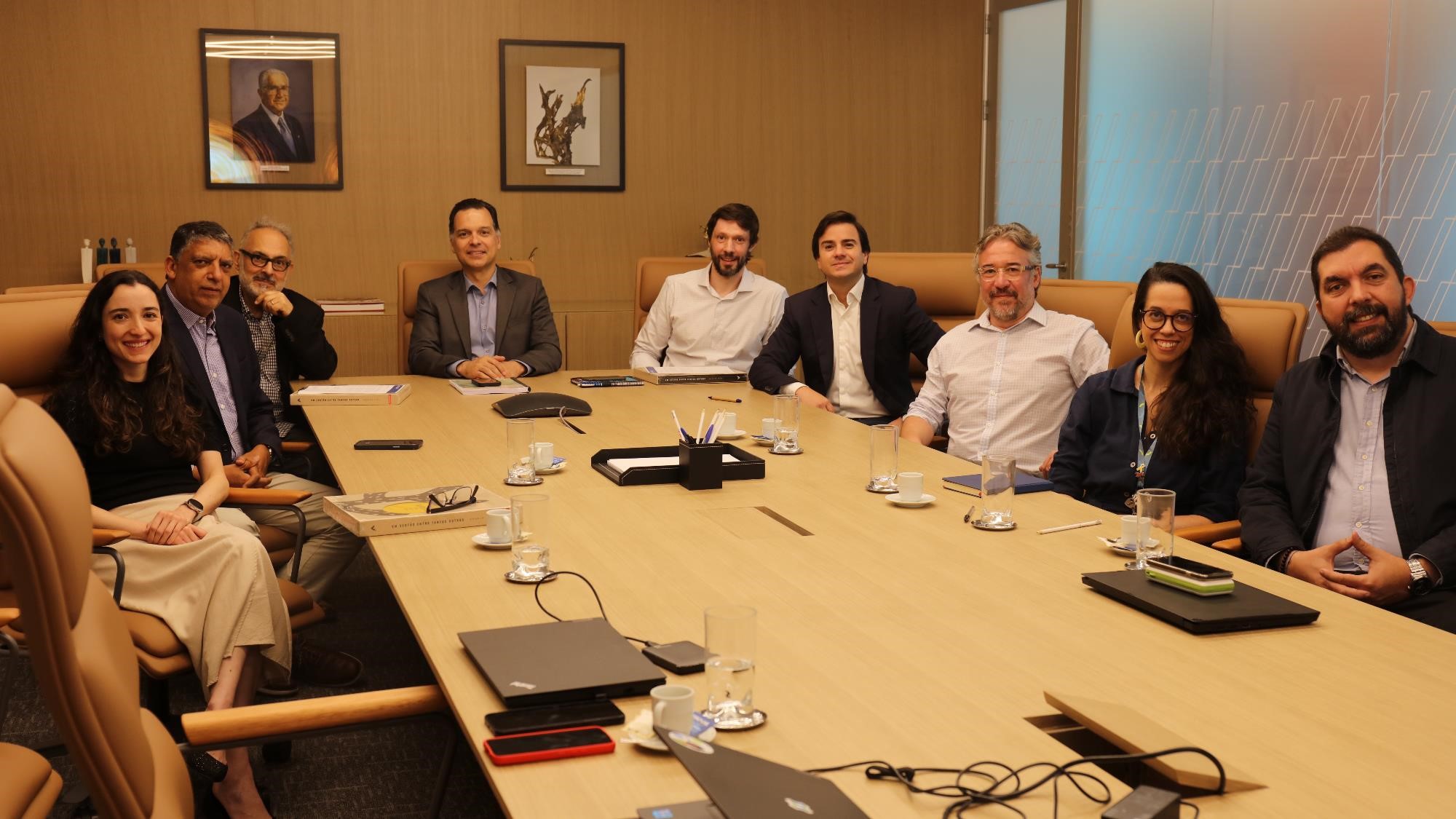As construction at the Gávea subway station advances to the stage involving the detonation of 60 meters of rock,...
Meeting with Aberje
DATE: 11/23/2023
On November 22, a delegation from Aberje – Associação Brasileira de Comunicação Empresarial (Brazilian Association of Corporate Communication), made up of the director-president, Prof. Dr. Paulo Nassar, the executive director, Hamilton dos Santos, and the entity’s chief economist, Leonardo Müller, visited Novonor’s headquarters in São Paulo, where they were received by OEC’s CEO, Mauricio Cruz Lopes, and the communications team, led by director Rodrigo Vilar. The managing partner of the Loures agency, Renato Krausz, was also present.
Founded in 1967, Aberje brings together around 900 member companies, which form a significant part of Brazil’s GDP, and is one of the largest B2B networks in the country. The organization’s main objective is to strengthen the role of communication in companies and institutions, to foster the exchange of experiences between members and to develop research, strategic studies and publications in its sector.
The meeting was an opportunity for Aberje representatives to learn in detail about the new format of Novonor’s companies and their strategic direction, as well as the ongoing communication work. Topics such as governance, innovation and the ESG agenda were also discussed.
Novonor and its companies promote the associative agenda by participating in various organizations, such as Aberje itself, the IBGC – Brazilian Institute of Corporate Governance, the Ethos Institute, ABDIB – Brazilian Association of Infrastructure and Basic Industries and others. According to Mauricio Cruz, the opportunity to dialog and exchange experiences, fostering discussions and transformation agendas, are some of the benefits of associative and sectoral engagement. “The meeting was very positive and I was struck by the number of infrastructure companies that are active in Aberje, including some of our main clients and partners. Direct and qualified communication with society, legitimizing major works and concessions, is a premise for the success of these initiatives in the digital age,” he explains.




No comments